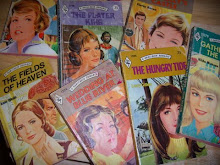The other version - (first in Hesiod, and the one fancied by Ovid in Metamorphoses) is more exciting. Out as before in the country, near Mount Kyllene in the Peloponnese, he came upon a pair of snakes lustfully intertwined. He hit the copulating couple a smart blow with his stick - presumably striking a blow for animal decency. But Hera was not pleased: as the sensuous seductress of Zeus, she heartily approved of sex - even for the lower creatures. His punishment was cruel - the worst a man could imagine. He was transformed into a woman, in mind as well as body. But some time later (after seeing the copulating snakes again, but this time alllowing them their pleasure) he was released from his sentence, and permitted to resume his masculinity. All could then have been well, but Tiresias was drawn into an argument between Hera and her husband Zeus. A common area for marital discussion - who has more pleasure in sex - the man or the woman? Hera was clever enough to let Zeus believe that men were superior in this as in everything else. But it was decided to check with Tiresias - as only he had known what it was actually like in the two roles. As a dastardly man, he revealed woman's greatest secret: on a scale of ten, she gets nine parts of the pleasure to his one. Hera was furious, and instantly struck him blind - Zeus couldn't do anything to stop her - but he did give Tiresias the gift of second sight.
And so that was that. Poor guy, and what a bummer. Welp, if the Gods know best then what the hell are you going to do? Probably not too much.
So, an endearing line in literature. Well goodness, I just don't know if anything could possibly be more so more than the first of G.E. I honestly wouldn't know where to begin in presenting something I found to be an endearing line in literature. But I'll certainly keep you posted if the light bulb goes off in this direction.
Anamnesis-
1. the recollection or remembrance of the past; reminiscence.
2. Platonism. recollection of the Ideas, which the soul had known in a previous existence, esp. by means of reasoning.
3. the medical history of a patient.
4. Immunology. a prompt immune response to a previously encountered antigen, characterized by more rapid onset and greater effectiveness of antibody and T cell reaction than during the first encounter, as after a booster shot in a previously immunized person.
5. (often initial capital letter) a prayer in a Eucharistic service, recalling the Passion, Resurrection, and Ascension of Christ.
3. the medical history of a patient.
4. Immunology. a prompt immune response to a previously encountered antigen, characterized by more rapid onset and greater effectiveness of antibody and T cell reaction than during the first encounter, as after a booster shot in a previously immunized person.
5. (often initial capital letter) a prayer in a Eucharistic service, recalling the Passion, Resurrection, and Ascension of Christ.
The task of the poet is to help people live their lives. What a job.
Everyone has the same amount of time in the day. What we do is a matter of priorities.
If our lives are not interesting or important then neither is yours or anyone that of anyone else. What a terrible thought. How incredibly depressing. More credit should be given to the average human life. There is always something there we don't realize. With the billions of people living, it is hardly an option to put them all in a little box and say this and this of them just in order to make a point. It simply is not accurate. Yes television exists, some watch significant amounts, some not at all. What may I ask is the motive of putting others you consider below your standards down? It might be realized this very act is reason to have the same done to you. But anyway... on to the next thing.


















